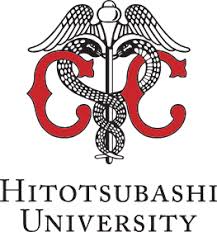| Subject | Rank |
|---|---|
Economics | 151-200 |


Hitotsubashi University in the words of the President, Professor Susumu Yamauchi Hitotsubashi University is an academic institution which primarily focuses on the social sciences and the study of civil society. It has long been contributing to the development of cultures as well as of politics, economy, and society in Japan in a spirit and academic climate that respect liberty. Since the University's foundation, faculty and staff alike have constantly endeavored to enhance its standards of education and research, and as a result the University has produced many prominent individuals active in business and social circles in Japan and abroad.History and Tradition Hitotsubashi University traces its origin to the Commercial Training School privately founded by Arinori Mori in Ginza, Tokyo in 1875. Kaishu Katsu, a famous samurai in the late Edo and Meiji periods, and Eiichi Shibusawa, a famous businessperson in the same periods, sympathized with its needs and supported its development. The Commercial Training School became the Tokyo Commercial School in 1884 and moved to Kanda, Tokyo in 1885. In the process of modernization of Japan after the Meiji Restoration, the School, changing its name to the Higher Commercial School in 1887 and to the Tokyo Higher Commercial School in 1902, played a vital role in Japan's practical education related to commercial activities. As a result of these developments the status of the school was raised, and it became the Tokyo University of Commerce in 1920. Education and research at the University were broadly extended to encompass not only commerce and management but also economics, law, and the humanities, such as philosophy, literature and history. In this way, the University has continually paved the way to become a commercial and economics university with a unique and appealing character. In 1949 the Tokyo University of Commerce became Hitotsubashi University and took a further step toward becoming a truly comprehensive university for the social sciences. In 1951 the University established a four-faculty system consisting of the Faculties of Commerce and Management, Economics, Law, and Social Sciences, and this system remains unchanged today. In 1953 the four Graduate Schools affiliated to the faculties were established. The Graduate School of Language and Society was added in 1996, followed by the Graduate School of International Corporate Strategy in 1998. In order to meet the needs of the times, the University set up a Law School affiliated to the Graduate School of Law in 2004 and also established the Hitotsubashi School of International and Public Policy in 2005. Education and Research at Hitotsubashi University Ever since its foundation, the University's goal has been to produce cultured individuals with a solid background in the social sciences and a civil-minded and international sensibility, people who will be able to take on leadership roles in the political and economic world and in the industrial world as "Captains of Industry". This ideal is now embodied in the Charter of Research and Education of Hitotsubashi University as "producing creative-thinking specialists, innovators who will act with reason and rationality, and policymakers and businesspeople with leadership skills". In order to realize its goals, the University has been constantly trying to maintain students' high standard of basic academic performance by improving and expanding curricula at the undergraduate and graduate levels. In addition, we have always endeavored to deepen students' education by focusing on a small-group seminar system so that students create and discover something new and inspiring day by day. Promoting the internationalization of education is another important goal for the University. We have already welcomed many students from overseas and have sent many Japanese students to universities abroad. At present there are more than 600 international students from over 50 different countries enrolled at the University, accounting for more than 10 per cent of the total student body. We are proud too of our scholarship system, which allows over 40 of our students to study abroad on long-term programs every year. We are now considering introducing programs that will give every student an opportunity to study abroad while at the University, including short-term study abroad programs. Hitotsubashi University has contributed its research activities to a national and global research network constructed by the University and its academics, giving it a leading role in the field of social sciences in Japan. Currently the University has academic exchange programs with over 80 overseas universities and institutions, forming a cornerstone for international joint research and exchange of researchers among universities throughout the world. Since more and more global exchange is needed for the development of academic research in the 21st century, Hitotsubashi University has set itself the goal of acting as a state-of-art research hub in the social sciences. To further this end the University has started to undertake major research projects focusing on both fundamental and cutting-edge research. Developing an Attractive University To further increase its appeal the University will strive constantly to produce more and more capable individuals who will be able to contribute widely to global society, and to continue to develop the University environment. Our goal is to create a university that is more interdisciplinary and international, where people from around the globe can gather and share their knowledge with reason and sensibility, to finally produce the most attractive university possible.



